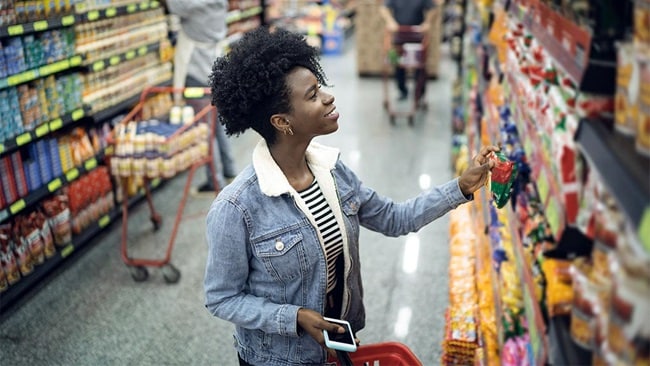Key Takeaways:
- Nigeria, Ghana, and Senegal are emerging as major FMCG West Africa hubs, adapting supply chains to serve a growing base of young, digitally connected consumers.
- Nigeria’s retail market leads in scale and innovation, supported by logistics investments like the Lekki Deep Sea Port and cold chain networks.
- Ghana’s supply chain modernization and digital retail innovation are fuelling market growth and enabling faster, more resilient trade flows.
- Senegal’s manufacturing expansion and climate-resilient logistics infrastructure are driving competitiveness in consumer goods.
- Regional integration under AfCFTA and ECOWAS continues to unlock opportunities for faster, more efficient intra-African trade.
FMCG Market Momentum in West Africa
Momentum in the FMCG market in West Africa is accelerating, driven by urban demand, digital transformation, and regional trade integration. Markets like Nigeria, Ghana, and Senegal are transitioning from pure consumption economies into strategic manufacturing and distribution bases serving the wider African middle class.
From Lagos to Accra to Dakar, supply chains are adapting to serve millions of young, tech-savvy consumers who are redefining what and how goods are bought. Mobile-money adoption and social-commerce platforms are extending retail reach into peri-urban markets, strengthening FMCG logistics West Africa.
Nigeria’s FMCG Market: Retail Innovation and Supply Chain Efficiency
As the largest economy in the region, Nigeria anchors FMCG growth in West Africa, setting the pace for retail innovation and logistics modernisation. The country’s FMCG sector is valued between USD 28–32 billion, with growth potential up to USD 50 billion.
Retail Expansion and Consumer Trends
While informal markets remain crucial, modern retail in Nigeria is expanding rapidly. Hypermarket chains such as Spar Nigeria and online platforms like Jumia are reshaping buying behaviour. FMCG brands are increasingly using data-driven promotions to capture Nigeria’s growing urban middle class.
Infrastructure and Manufacturing Investments
- Port Infrastructure: The Lekki Deep Sea Port and inland dry ports in Ibadan, Kaduna, and Kano are easing congestion and accelerating inland cargo movement.
- Cold Chain Development: Expanding refrigerated storage and transport networks are reducing spoilage.
- Manufacturing Hubs: Special Economic Zones like the Lekki Free Trade Zone strengthen local production and enable just-in-time FMCG logistics in Nigeria.
Ghana’s FMCG Market: Digital Growth and Supply Chain Connectivity

While Nigeria’s retail industry dominates in scale, Ghana is establishing itself as a rising hub for supply chain innovation and FMCG expansion. Valued at USD 12–18 billion, Ghana’s FMCG sector could reach USD 25 billion as consumer confidence and local production grow.
Retail Innovation and Consumer Spending
Cultural events and festive periods especially December holidays fuel spending on packaged foods, beverages, and frozen goods. The rise of digital retail platforms such as Jumia and Hubtel are improving accessibility, while digital payments are rising among younger consumers, reinforcing Ghana supply chain efficiency for FMCG.
Infrastructure and Supply Chain Development
- Ports and Corridors: Expansion of Tema Port Terminal 3 and Boankra Inland Port enhances Ghana’s connectivity to regional trade routes.
- Industrial Zones: The Dawa and Shama SEZs expand agro-processing and local manufacturing, reducing import dependence.
- Digital Supply Chains: Real-time tracking, AI-based forecasting, and predictive logistics are improving performance.
These advances demonstrate how the Ghana supply chain is building regional resilience and supporting FMCG West Africa distribution efficiency.
Senegal’s FMCG Market: Consumers Powering Manufacturing Growth
Smaller but dynamic, Senegal’s FMCG market is defined by consumer-driven demand and local manufacturing investments across the Senegal consumer goods industry.
Retail and Consumer Patterns
Festivals such as Ramadan, Tabaski, and Independence Day trigger spending surges in packaged goods. While informal trade remains influential, platforms like Yobouma are digitizing retail, and mobile apps and e-wallets are gaining traction among younger urban consumers.
Infrastructure and Industrial Investment
- Transport Networks: The Dakar–Diamniadio Highway and Port of Dakar modernization are strengthening logistics flow and reliability.
- Agro-Processing: Under the Plan for Accelerated Industrialization (PAI), investment in food and household goods manufacturing is rising.
- Climate Resilience: Solar power, flood-resistant facilities, and borehole systems are protecting supply continuity.
Regional Integration: AfCFTA, ECOWAS, and Cold Chain Expansion
The future of FMCG in West Africa lies in trade integration and supply chain modernization. According to a United Nations Economic Commission for Africa (UNECA ) analysis of West African value-chains in the AfCFTA context, regional trade integration is unlocking new manufacturing and distribution of opportunities.
Special Economic Zones and Clusters
Across Nigeria, Ghana, and Senegal, SEZs are creating regional production clusters—bringing manufacturing closer to consumer demand, reducing lead times, and stimulating employment.
Cold Chain Expansion
Rising demand for frozen foods, dairy, and beverages requires modern cold chain networks. Companies investing in temperature-controlled logistics and urban consolidation hubs gain a decisive edge in ensuring product freshness and consistency.
Urban Logistics Challenges
Congestion in Lagos and Accra remains a bottleneck, but logistics operators are adopting smart delivery hubs, route optimization, and predictive analytics to ensure supply chain fluidity during peak seasons.
Risk Management and Supply Chain Resilience
Opportunities in FMCG West Africa come with operational risks: tariff shifts, infrastructure bottlenecks, and energy and climate risks. Currency volatility and packaging import costs also pressure margins for retailers and manufacturers.
To mitigate these, FMCG companies are embracing renewable energy projects, distributed warehouse networks, and AI-enabled demand forecasting.
The Verdict — FMCG Growth in West Africa is Strategic
With Nigeria’s retail innovation, Ghana’s supply chain modernization, and Senegal’s manufacturing resilience, West Africa’s FMCG sector is emerging as a continental powerhouse. For logistics and trade leaders, success depends on anticipating consumer demand, aligning with infrastructure upgrades, and adapting to policy shifts across West African trade agreements.
Collaborate with Maersk to strengthen your FMCG supply chain and seize growth opportunities across Africa’s most dynamic markets. Learn how Maersk connects FMCG supply chains across Africa or for more logistics trends and insights, read and download The Logistics Trend Map.















